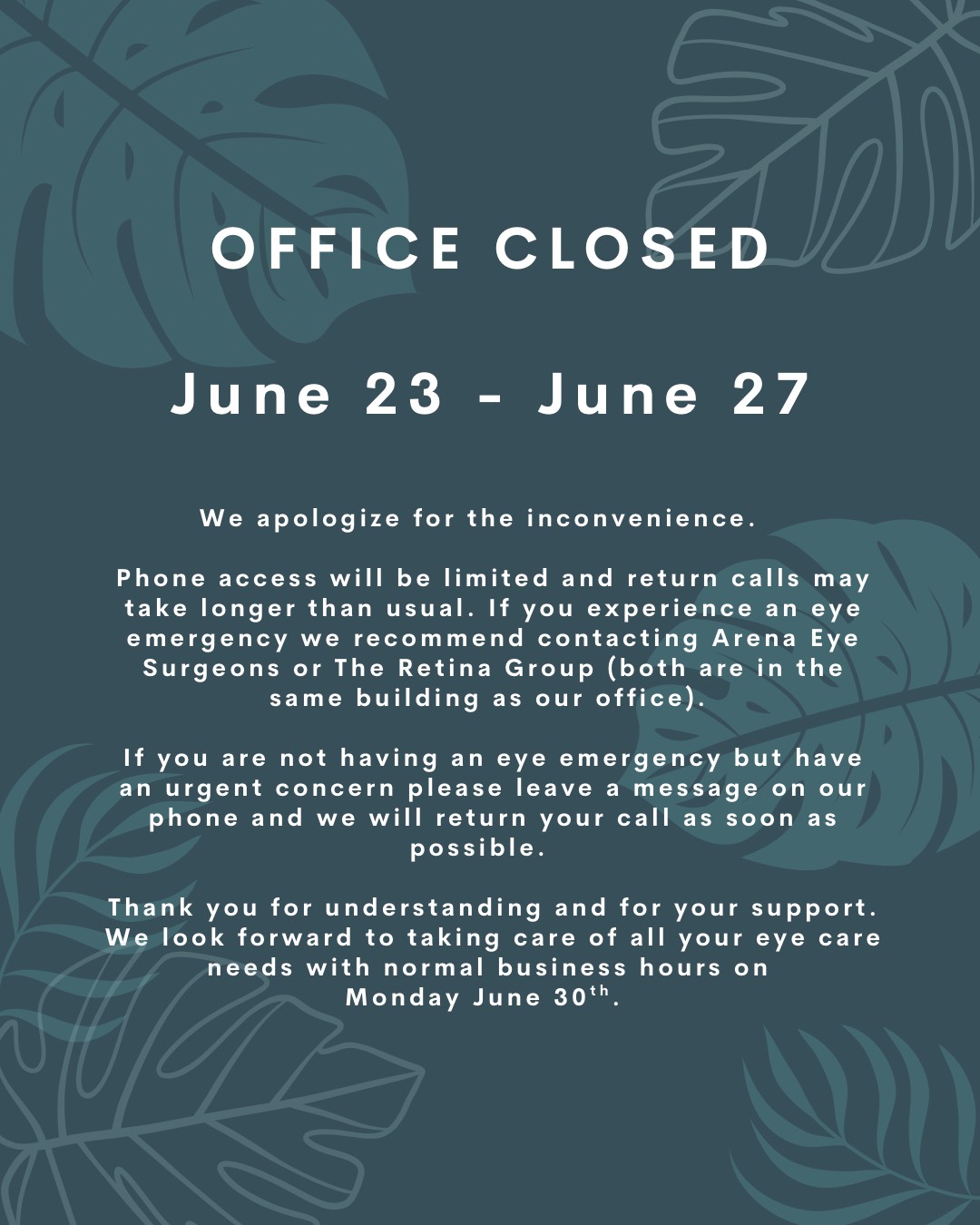
Do your eyes feel gritty, irritated, or like they’re constantly burning or watering? You’re not alone. Dry Eye Disease (DED) affects millions of people and is one of the most common complaints we see in our office. But what exactly causes it?
Dry Eye Disease happens when your eyes either don’t produce enough tears or the tears they do produce aren’t healthy enough to keep the surface of your eyes comfortable and protected. Here are some of the most common culprits behind this frustrating condition:
1. Meibomian Gland Dysfunction (MGD)
Your eyelids have tiny oil glands called Meibomian glands that help keep your tears from evaporating too quickly. When these glands become blocked or inflamed, your tears don’t have enough oil, leading to dryness and irritation. MGD is one of the leading causes of dry eye and is often overlooked.
2. Hormonal Changes
Hormones play a big role in tear production—especially in women. Many people notice dry eye symptoms worsen during pregnancy, menopause, or when using hormonal birth control. That’s because estrogen and androgen levels directly affect the glands responsible for tear production.
3. Autoimmune Conditions
Conditions like Sjögren’s syndrome, rheumatoid arthritis, and lupus can cause the body to attack its own tear-producing glands. These patients often suffer from severe dryness and need more advanced treatments and long-term management.
4. Thyroid Disease
People with thyroid disorders—especially those with thyroid eye disease—may experience inflammation and changes in eyelid position that lead to increased exposure and evaporation of the tear film.
5. Environmental Factors
Windy climates, dry air (like we get indoors during the winter), air conditioning, and excessive screen time can all contribute to or worsen dry eye. Blinking less often—especially during screen use—means tears evaporate more quickly and the ocular surface is more exposed.
6. Medications
Many common medications can contribute to dry eye symptoms, including:
Antihistamines
Antidepressants
Blood pressure medications
Birth control pills
Isotretinoin (for acne)
If you suspect your medication may be a factor, don’t stop it—talk to your doctor about alternatives or supportive treatments.
7. Allergies
Seasonal and environmental allergies can cause inflammation on the ocular surface, making dry eye worse. And ironically, over-the-counter allergy drops can sometimes dry the eyes out even more.
8. Aging
As we age, our natural tear production decreases. Dry eye is especially common in people over 50, but it can affect younger people too—especially those with contributing risk factors.
The Good News? Help Is Available.
You don’t have to live with dry, uncomfortable eyes. With a proper diagnosis and a treatment plan tailored to your unique causes, you can find relief. From in-office treatments like intense pulsed light and radio frequency, to prescription drops and lifestyle changes, we have tools to help your eyes feel better.
If you're experiencing symptoms of dry eye, don't ignore them—your eyes are trying to tell you something. Schedule a comprehensive dry eye evaluation with our team today. We’ll get to the root of the problem and help you get back to seeing and feeling your best.











